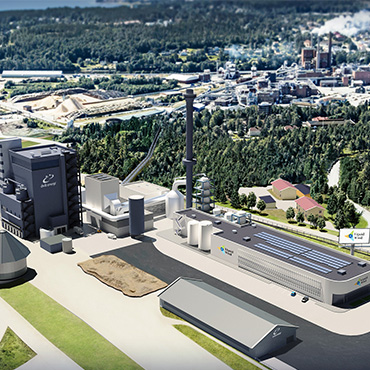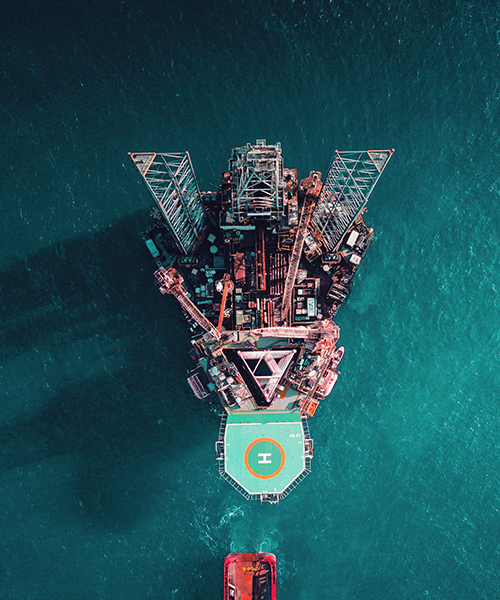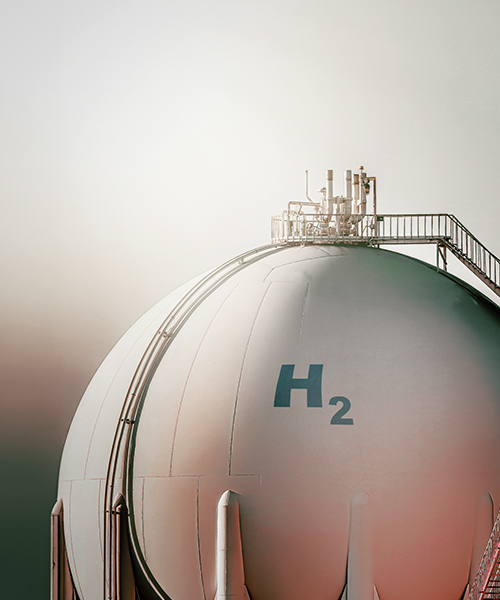May 19, 2021 • 2 min read
Combining green hydrogen and biogenic CO2 to create renewable methanol
The hunt is on for cleaner fuel alternatives as the world aims to meet carbon reduction targets – a potential alternative is eMethanol.
Also known as renewable methanol, it can provide a sustainable alternative to fossil fuels and a potential pathway to reduce carbon emissions by over 90 percent in marine transportation.
We’ve been awarded the front-end engineering design services contract for a power-to-fuel project – Liquid Wind's first commercial scale eMethanol facility. We will also provide the project’s cost estimate.
Producing and using eMethanol
The facility, which will be in Örnsköldsvik, northern Sweden, is expected to produce 50,000 tonnes of renewable methanol every year. The feedstock for the facility will use biogenic CO2 from a biomass-fired power plant and combine it with green hydrogen, made from renewable electricity and water, to produce eMethanol.
eMethanol can also be used as a building block in the production of other sustainable chemicals and fuels. These include synthetic gasoline, acetic acid, formaldehyde and olefins. This synthetic methanol can contribute to the decarbonization of industries such as adhesives, solvents and plastics.


eMethanol production process
Scaling up globally to help meet 2050 decarbonization targets
Liquid Wind plans to build 500 facilities by 2050. The focus will be on designing operations for scalability through intelligent replication of facilities, to reach the scale needed to reduce carbon emissions significantly. We will make this possible through a standardized design concept that can be replicated and utilized in Liquid Wind’s future developments.
“Worley has extensive, relevant experience and we are confident it will be a valuable partner in developing standardized and replicable eMethanol facilities,” said Claes Fredriksson, CEO and Founder at Liquid Wind. “Its experience with a modular approach will support in keeping costs down and increasing our speed to market. As well as enabling the rapid replication of facilities, which is needed to meet the growing demand for carbon-neutral liquid fuel”.
“Synthetic fuels will play a significant role in the future of transportation and in the decarbonization of several other industries,” said Bradley Andrews, President at Worley. “We are committed to delivering a more sustainable world and we look forward to helping Liquid Wind achieve its sustainability goals and ambitions to bring renewable methanol to market at scale.”



